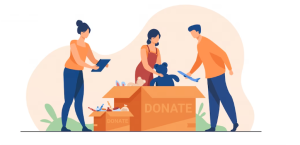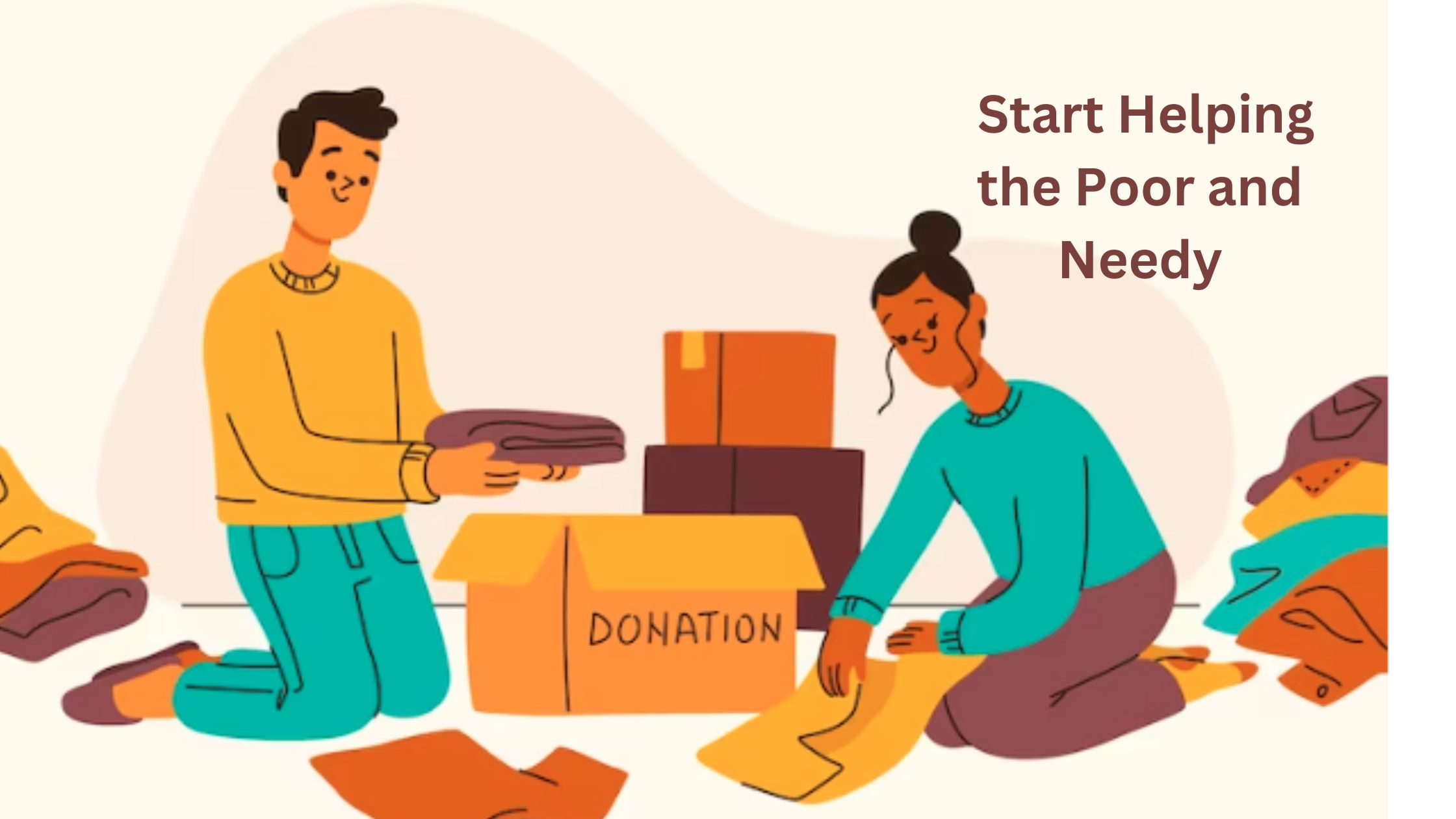Helping the poor and needy is a noble endeavor that can make a significant difference in the lives of individuals and communities. This comprehensive guide aims to provide you with valuable insights and actionable steps on how to contribute effectively towards alleviating poverty. Whether you are an individual looking to make a difference or an organization seeking to implement impactful programs, this article will equip you with the necessary knowledge and resources.
Understanding Poverty
What is Poverty?
Poverty is a complex societal issue characterized by a lack of resources and basic necessities needed for a decent standard of living. It encompasses economic, social, and political dimensions. Economically, poverty signifies insufficient income to meet essential needs, leading to challenges in accessing food, healthcare, and education. Socially, it causes social exclusion and marginalization, perpetuating discrimination and limited social connections. Politically, poverty is influenced by unequal wealth distribution, inadequate social protection systems, and governance issues.
Structural inequalities hinder efforts to alleviate poverty and maintain the cycle of disadvantage. Addressing poverty requires comprehensive strategies that tackle its root causes and provide individuals and communities with the necessary resources, opportunities, and support to break free from the grip of poverty.
Causes of Poverty
Poverty can stem from various factors such as limited access to education, healthcare, employment opportunities, gender inequality, and social exclusion. Understanding the root causes is crucial in formulating effective strategies for poverty alleviation.
Lack of Education
Limited access to quality education can perpetuate poverty by hindering individuals from acquiring the necessary skills and knowledge to secure better job opportunities and escape the cycle of poverty.
Unemployment and Underemployment
High unemployment rates and inadequate job opportunities contribute to poverty. Insufficient income levels, particularly in informal sectors, can lead to individuals and families struggling to meet their basic needs.
Economic Inequality
The unequal distribution of wealth and resources within societies widens the gap between the rich and the poor. This disparity limits the economic mobility and opportunities for those living in poverty.
Discrimination and Social Exclusion
Discrimination based on factors such as race, gender, ethnicity, or caste can marginalize certain groups, making it difficult for them to access education, employment, healthcare, and other essential services, thus perpetuating poverty.
Lack of Basic Services
Limited access to basic services like clean water, sanitation, healthcare, and electricity further exacerbate poverty. Without these fundamental necessities, individuals struggle to improve their living conditions and break free from poverty.
Poor Governance and Corruption
Weak governance, lack of transparency, and corruption can hinder economic growth and perpetuate poverty. Mismanagement of public funds and resources diverts resources away from poverty reduction initiatives.
Health Issues and Disability
Poor health, diseases, and disabilities can push individuals and families into poverty due to high healthcare costs, loss of income, and limited access to support services.
Environmental Factors
Natural disasters, climate change, and environmental degradation can disproportionately affect impoverished communities. Loss of livelihoods, displacement, and the destruction of infrastructure and resources can plunge individuals into poverty.
Conflict and Instability
Societies plagued by conflict, violence, and political instability often experience high levels of poverty. Wars and civil unrest disrupt economic activities, displace populations, and hinder development efforts.
Inter-generational Transmission of Poverty
Poverty can be passed down from one generation to the next. Limited access to quality education, healthcare, and resources can perpetuate poverty cycles within families and communities.
It is important to recognize that these causes of poverty are interconnected and often reinforce each other. Addressing poverty requires a holistic approach that tackles these underlying factors and implements comprehensive strategies for sustainable development and social inclusion.
Effects of Poverty
Poverty has far-reaching consequences on individuals, families, and communities. It hinders personal development, limits access to essential services, and perpetuates cycles of deprivation. Addressing the effects of poverty is essential for creating sustainable change.
The Importance of Helping the Poor
Helping the poor is not only a moral duty but also an investment in building a more equitable society. By empowering individuals and communities, we can foster social cohesion, economic growth, and overall human development.
Ways to Help the Poor and Needy
Educate Yourself
Before embarking on a journey to help the poor and needy, it is crucial to educate yourself about the root causes of poverty and understand the complexities of the issues at hand. Read books, research articles, and explore reputable online resources to gain insights into poverty, social inequality, and the challenges faced by disadvantaged communities. This knowledge will help you make informed decisions and develop effective strategies for providing assistance.
Volunteer
One of the most impactful ways to help the poor and needy is by offering your time and skills as a volunteer. Numerous nonprofit organizations and community initiatives are dedicated to serving vulnerable populations. Find local charities or NGOs that align with your interests and values, and inquire about volunteer opportunities. Whether it’s assisting at a food bank, tutoring underprivileged children, or participating in community outreach programs, volunteering allows you to directly engage with those in need and make a tangible difference in their lives.
Donate Wisely
Financial contributions play a significant role in supporting organizations that work tirelessly to alleviate poverty. However, it is essential to donate wisely and choose reputable charities that allocate resources efficiently and transparently. Research charitable organizations and verify their legitimacy through independent platforms like Charity Navigator or GuideStar. Consider donating to causes that resonate with you personally, such as education, healthcare, or sustainable development. To support education, you can explore elementary fundraising ideas .These elementary fundraising ideas can not only raise funds but also raise awareness about poverty and make a positive impact on those in need. Regular small donations can accumulate to create substantial impact over time.
Support Local Businesses
While large-scale donations are crucial, supporting local businesses owned by individuals from marginalized communities can have a direct and sustainable impact on poverty reduction. Instead of solely relying on multinational corporations, consciously choose to patronize local shops, markets, and artisans. This not only helps create employment opportunities but also contributes to the economic growth and empowerment of marginalized communities.
Engage in Microfinance
Microfinance initiatives have proven to be effective in empowering impoverished individuals and communities. By providing small loans to entrepreneurs who lack access to traditional banking services, microfinance programs enable individuals to start or expand their small businesses. Research microfinance organizations or consider lending platforms that connect lenders directly with borrowers, both locally and internationally. By investing in the entrepreneurial spirit of the poor, you can help break the cycle of poverty and create sustainable change.
Advocate for Change
Beyond personal actions, advocating for policy changes and systemic reforms is vital to address the root causes of poverty and inequality. Engage with local and national governments by writing letters, signing petitions, or participating in peaceful demonstrations to highlight the issues faced by the poor and needy. Join or support organizations that advocate for social justice and equitable policies. By amplifying the voices of the marginalized, you contribute to creating an inclusive society that prioritizes the needs of the vulnerable.
Raise Awareness
Use your platform, whether it’s social media, a blog, or public speaking engagements, to raise awareness about poverty and the struggles faced by the poor and needy. Share stories, statistics, and personal experiences to help people understand the realities of poverty and inspire them to take action. Encourage others to join you in your efforts and create a ripple effect of compassion and empathy.
Foster Empowerment
Instead of engaging in traditional forms of charity that perpetuate dependency, focus on fostering empowerment and sustainable development. Seek opportunities that prioritize education, skill-building, and capacity development within marginalized communities. By enabling individuals to acquire the necessary tools and knowledge to improve their own lives, you contribute to long-term solutions and break the cycle of poverty.
Organizations Helping for the Poor
Local Charities
Local charities play a crucial role in addressing the immediate needs of the poor and vulnerable within their communities. These organizations often have a deep understanding of local challenges and can provide targeted assistance to those in need.
International NGOs
International non-governmental organizations (NGOs) focus on poverty alleviation efforts on a global scale. Their projects encompass various sectors such as education, healthcare, livelihoods, and infrastructure development, aiming to create long-term impact.
Government Programs
Government programs and policies are instrumental in combating poverty and inequality. These initiatives include social welfare programs, job creation schemes, and infrastructure development projects. Supporting and advocating for effective policies can drive positive change.
Overcoming Challenges
Lack of Resources
One of the primary challenges in addressing poverty is the limited availability of resources. However, innovative approaches, collaboration, and resource mobilization can help overcome these constraints and maximize impact.
Changing Mindsets
Addressing poverty requires not only tangible interventions but also changes in societal mindsets. Challenging stereotypes, promoting empathy, and fostering inclusivity are essential in creating a supportive environment for poverty alleviation efforts.
Sustainability and Long-Term Impact
Sustainable change requires long-term planning and a focus on systemic solutions. By promoting sustainable development practices, investing in capacity-building, and prioritizing community participation, we can create lasting impact and reduce dependency.
Inspiring Stories of Helping the Poor
Highlighting inspiring stories of individuals and organizations making a difference can serve as powerful motivation for others to take action. These stories showcase the transformative power of compassion and determination in creating positive change.
Conclusion
Helping the poor and needy is a collective responsibility that requires concerted efforts from individuals, organizations, and governments. By understanding the complexities of poverty, embracing sustainable approaches, and actively engaging in supportive actions, we can create a more inclusive and compassionate society. Let us join hands to make a positive impact on the lives of those in need.
